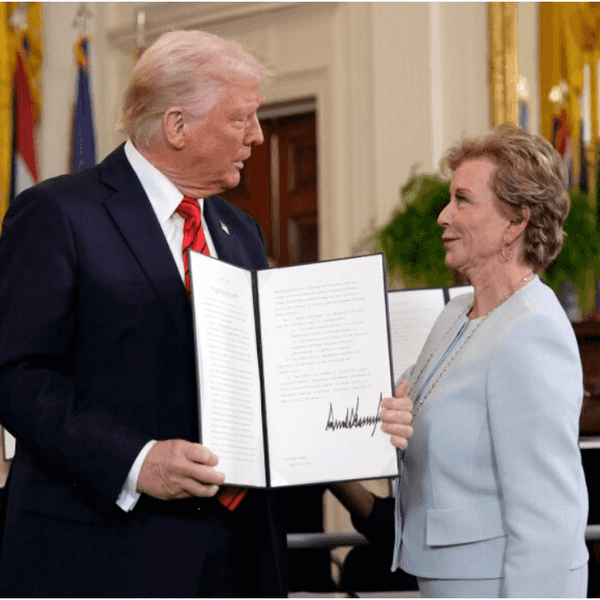Dennis Hastert Case Leaves Open Many Questions About Mysterious ‘Individual A’

By David Heinzmann and Jeff Coen, Chicago Tribune (TNS)
CHICAGO — One by one, men identified by political insiders and the Kendall County rumor mill have denied being “Individual A,” the mysterious figure who prosecutors say took cash from former House Speaker J. Dennis Hastert to keep quiet about a dark history with him.
They have repeatedly waved off the media, sometimes pointing to others who in turn have told persistent reporters to keep looking.
More than a month after Hastert’s indictment, the identity of the person who sources said was a victim of sexual misconduct by Hastert in connection with his years as a teacher and wrestling coach at Yorkville High School remains a secret. The mystery surrounding Individual A begets more questions as the case unfolds.
Does the government regard Individual A as a victim, a witness, or as a planner taking part in an illegal scheme? Or some combination of all three? What did Individual A do with the $1.7 million Hastert allegedly gave him before investigators caught up to the former congressman’s activities? And how did the two reach an agreement for Hastert to pay a total of $3.5 million, a staggering sum even for a man who turned to a lucrative lobbying career after decades in public service.
Some legal experts have speculated that Individual A is being treated as a cooperating witness. But prosecutors may not need his testimony to prove their allegation that Hastert illegally took large sums of money out of the bank without reporting it, then lied to the FBI when asked about what he was doing.
The government likely does not need Individual A’s cooperation to make its case against Hastert on the bank and lying charges, said Jeff Cramer, a former federal prosecutor who now heads the Chicago office of Kroll, a corporate investigations firm. But information from the recipient of the money does help prosecutors build a more robust story around their case.
“In theory, no, it doesn’t matter why one takes out the money, nor why someone lies to the FBI. The fact is, they do it,” Cramer said. “However, that part of the tale, if it goes to trial, the jury is going to want to hear … It does help explain why (Hastert) was so frantically trying to get money out, and after the banks came to him, he continued.”
Sources with knowledge of the case have said Hastert made payments to cover up sexual misconduct against Individual A, identified only as a man. For their part, prosecutors have yielded few clues in court paperwork about that person’s identity, writing that Individual A lived previously in Yorkville and has known Hastert most of their life. In fact, prosecutors have taken steps to protect Individual A’s identity, filing court papers seeking to permanently seal records that could disclose his identity.
In the indictment, prosecutors noted Hastert’s early career as a teacher and wrestling coach between 1965 and 1981, which sent the media digging through Yorkville High School yearbooks and knocking on doors of former high school wrestlers now in their 50s and 60s.
Legal experts agree it is likely the clues in the indictment itself are on point.
“The indictment typically will contain language that is relevant to the offense, otherwise a good lawyer is going to be able to strike language from it,” said longtime defense attorney Joseph Duffy.
Since the indictment is required to outline the elements of the offense, it seems clear the government is establishing the circumstances under which Individual A was wronged by Hastert, said Duffy, who was previously a high-ranking federal prosecutor.
Allowing witnesses and victims in federal prosecutions to remain anonymous is not uncommon. But few cases share details as intriguing as the Hastert prosecution. Had the news of Individual A come out during Hastert’s eight-year tenure as speaker, the case would have been a major Beltway scandal.
Adding to the secrecy surrounding Individual A, and possibly extending anonymity to that person permanently, the judge in the case has granted a prosecutors’ motion for a protective order covering information surrounding the case.
Prosecutors contend that discovery material to be turned over to the defense could have an impact on “law enforcement interests” if it were made public. In their motion filed in June, prosecutors also said they were seeking to protect “the privacy interests of third parties.”
Under the court order, aspects of the case related to Individual A could be filed under seal and not publicly disclosed without the court’s permission. Sensitive discovery material would either be returned to the government or destroyed after the case is over.
That means the identity of Individual A is unlikely to be disclosed in the court case unless Hastert decides to proceed to a trial and prosecutors needed to call Individual A to the witness stand to build the case against him. The U.S. attorney’s office in Chicago declined to comment for this story.
But closing the door on the case without airing the whole story about Individual A’s role may leave open questions about what the public has a right to know. Authorities have not said whether Hastert’s years in Congress, including eight as speaker, had any bearing on his conduct with Individual A. They also have not said whether Individual A owes taxes on the money. Legal experts are somewhat divided on that question.
Prosecutors described the payments from Hastert as an agreement to “compensate for and conceal his prior misconduct.” Part of the intrigue, legal experts said, is whether Individual A took part in a crime by striking an agreement for hush money or whether he received an informal settlement for injuries negotiated in good faith with Hastert.
“As a general rule, compensation for injuries is not taxable,” Duffy said.
However, the indictment does say the payment of money was to have Individual A help cover past misconduct, meaning keep it quiet, Duffy said, adding “payment for the concealment of past wrongdoing would be taxable.”
In figuring out “the various tax possibilities of these questions, there’s a lot of ‘it depends,’ ” said Scott Coffina, a former federal prosecutor who now specializes in white-collar criminal defense and corporate investigations. The tax status of the money may be an open question at this stage in the case, he said.
“The government may ask (Individual A) about it,” said Coffina, who is based in Philadelphia. “And the IRS may be interested.”
But experts agreed that taking Individual A to task for any role in the alleged scheme is tricky if the government believes he was in fact a victim of sexual misconduct. If prosecutors want to treat Individual A’s involvement as if he was a victim in a civil case, there may be room to do so, notwithstanding the unusual nature of the arrangement between Hastert and Individual A.
“Settlements can be pretty informal,” said Michael Knoll, a tax policy expert who teaches at the University of Pennsylvania Law School. Settlements for damages related to physical injuries are tax exempt under the law, Knoll said. “The sexual abuse would trigger the physical element” of the tax exemption, he said.
But Cramer, who has experience in financial crimes prosecutions, was skeptical that the government would treat the Hastert payments as if they were a tax-free settlement.
“Could lawyers argue that and try to put a square peg in a round hole? Sure lawyers can argue that. But this is not a settlement,” he said.
If Individual A didn’t pay taxes on the money Hastert provided, it is likely the IRS would be interested, Cramer said: “This is a pitch coming right down the plate, and the IRS is not just going to look at it without taking a swing.”
Others agreed that if the tax-free settlement notion doesn’t prevail, the IRS is unlikely to take a pass on taxes owed just because Individual A may have been a victim.
“A sympathetic situation doesn’t mean you don’t owe taxes,” Knoll said.
(c)2015 Chicago Tribune. Distributed by Tribune Content Agency, LLC.
Photo: Doug Bowman via Flickr








